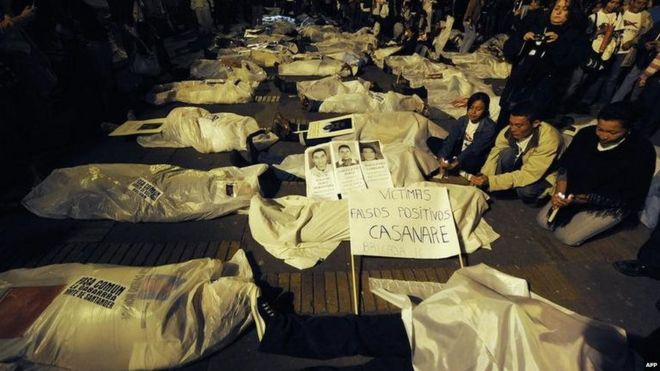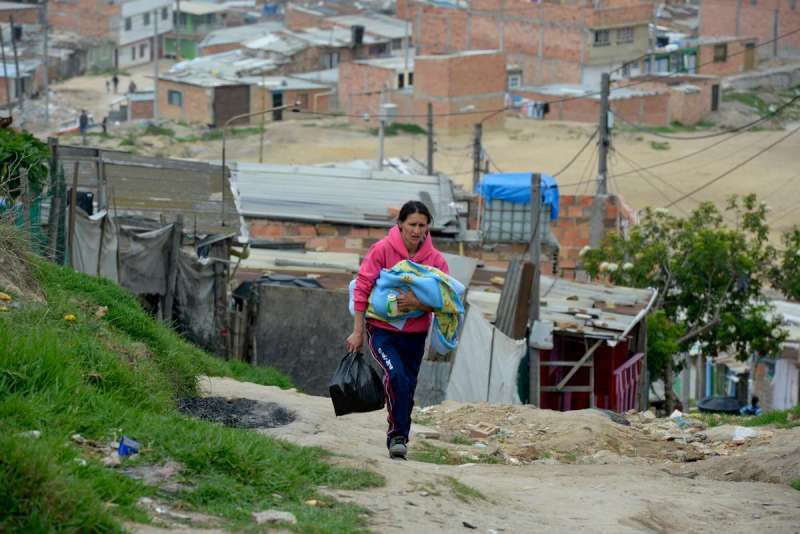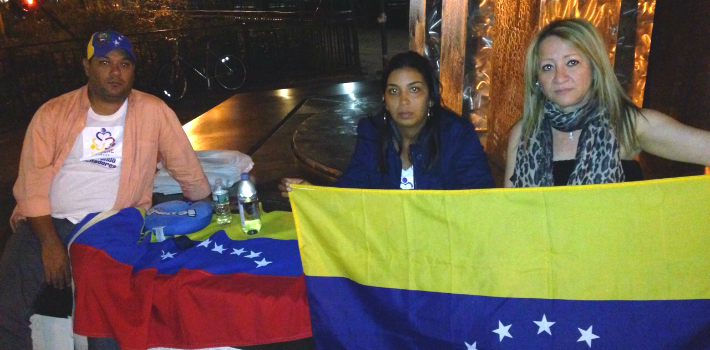By Kaitlyn Degnan
Impunity Watch Reporter, South America
BOGOTA, Colombia — Human Rights Watch has released a 95-page report on evidence of false positive killings by Colombian troops between 2002 and 2008. At the time, Colombia was conducting frequent military operations against the Revolutionary Armed Forces of Colombia.

Over 180 battalions and tactical units are thought to have been involved in the killings over the course of six years. The killings were considered a measure of military success and were some times rewarded with cash and vacation time.
The killings sputtered out after the death of 19 young men from Bogota caught international attention and resulted in the Colombian army’s top commander stepping down. Since then about 800 army personnel have been charged with extrajudicial killings, most of them lower-ranking soldiers.
Colombia enacted the Legal Framework for Peace in 2012, a constitutional amendment that may allow impunity for atrocities committed by guerilla groups, paramilitary groups and the military upon the completion of a peace agreement between Colombia and FARC.
Very few of the army’s top officials, who the report alleges knew or should have known about the killings, have been charged with the crimes. Current commander of the Colombian Army General Jaime Laspirilla and commander of the armed forces General Juan Pablo Rodriguez have been summoned by the Attorney General’s office to give evidence. Colombian President Juan Manuel Santos defended the two men, saying that he was not aware of any investigation against them.
Those involved who have spoken out or testified about the issue have faced backlash from within the military. Sergeant Carlos Mora reported some suspicious deaths to his superiors in 2006 and soon faced harassment and frequently dangerous assignments. His superiors also implied that his family would be killed if he continued told anyone else. He would later bring his suspicions to high command.
In October 2014, Niixón de Jesús Cárcamo was murdered in the 11th Brigade’s military detention center. Cárcamo had confessed to being involved with the false positive killings and was providing information on his superiors’ actions to investigators.
The International Criminal Court’s Office of the Prosecutor has been closely watching the proceedings in Colombia. The Office will consider opening an investigation if it determines that the Colombian authorities are not genuinely engaging in the prosecutions.
The United States has provided Colombia with billions of dollars in military aid because the country was “threatened by an insurgency,” said Senator Patrick J. Leahy (D-Vt.). Leahy has criticized the aid given to Colombia in the past. Additionally, Human Rights Watch has called for the U.S. to suspend any military aid to Colombia that is subject to human rights conditions.
Colombia and FARC representatives have been in ongoing talks for a peace agreement since November 2012.
For more information, please see:
BBC – Colombia’s top army officials ‘knew of extrajudicial killings’ – 24 June 2015
Human Rights Watch – Colombia: Top Brass Linked to Extrajudicial Executions – 24 June 2015



